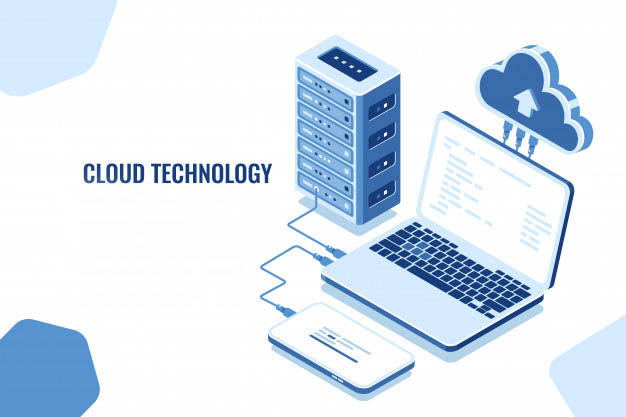We are in a time of changes in companies, modifications in terms of work methodologies and how we communicate with clients. One of those changes involves the change from working only on local servers to starting working in the cloud.
More and more services are committed to cloud services due to the ease that it implies in collaboration, implementation and opportunities to have product developments controlled to the maximum.
But so that you can decide for yourself what is best for you, I leave you a description of both options: locally and in the cloud.
Local Server
This model is the most traditional in companies. The implementation of the solution is carried out on the servers themselves within the infrastructure of the company that acquires the tool. It is a computer specially designed to process programs and distribute information.
The initial investment of a solution of this type is usually a little more expensive, being a generally long process and could have an additional cost when having to expand it with more components or if we need more space, etc. However, it is also true that in the long term costs can be reduced.
What we can highlight the most about local implementations is basically that the customization of the tool is guaranteed and you can adapt it to the needs that your company requires.
On the other hand, as far as security is concerned, it is our company that has total control of the information and data it has, therefore the protection of the information will be the responsibility of us and not of a third party.
It is also very important to properly maintain computers, update software, have a domain with proper permission management, install the professional operating system in all network stations, a defined backup policy and, above all, have with a Systems professional to centralize incidents.
On the cloud
Now let’s talk about solutions in the cloud (on cloud). These applications are not located on the company’s servers, but in a “Cloud” provided by a service provider. It will be hosted on your servers, and they are usually shared with other companies that have contracted the same services. This does not mean that there is no security , in fact it is usually the opposite; generally the provider has very high levels of protection and back-up procedures that ensure that data is never lost. Extreme security is vitally important, as you have information from various companies and users.
One of the great advantages of having your data in the cloud is that you only need a device and internet access, so the installation is usually simple and inexpensive, and in a matter of hours the solution is usually available to use normally.
In this way, cloud implementations would not require specialized IT personnel, however, we consider it highly recommended to have a person who knows these issues so that they can communicate with providers or solve incidents faster or even customize what be customizable from the solution.
Another positive aspect is that software updates are usually automatic and at times where the workload is usually little or no (usually weekends), which reduces the company’s concerns. In addition, accessibility to the cloud is total , since it is enough to have internet access to be able to connect at any time of the day and from anywhere.
It is not really that there is one better than another, although we believe that cloud solutions are the future, since being able to access from anywhere on the planet and at any time of day is very important. And not to mention the collaboration it allows with customers and suppliers wherever they are.

